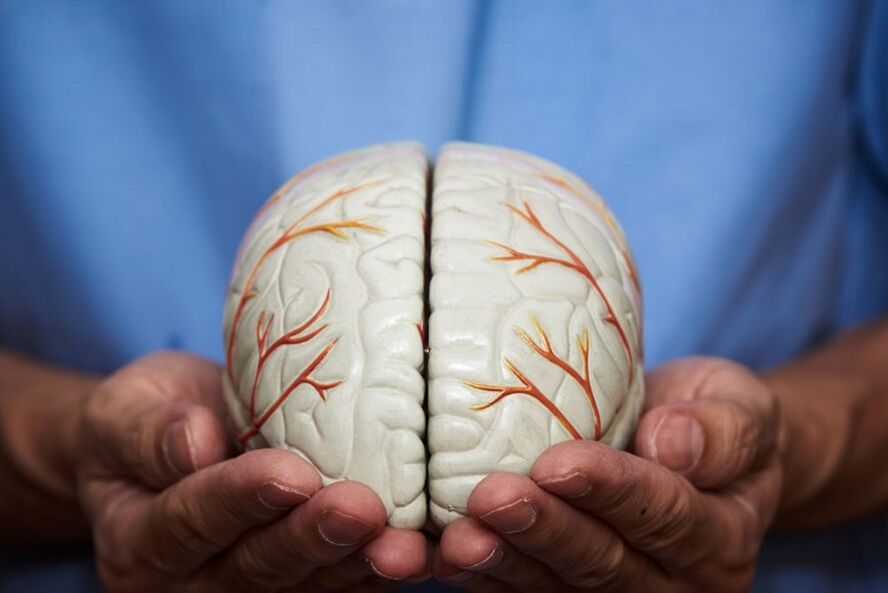
Everyone knows that getting rid of alcohol addiction and quitting drinking is very difficult, and for many people it is almost impossible. Drinking alcohol is held firmly in his persistent hands. Overcoming the psychological dependence controlled by your brain is a difficult task because the brain does not obey you in most cases, but your body obeys the brain. The body wants to drink water, and you will ask for water. The body wants to eat, it gives a signal to the brain and it, controlling you, asks for food. And the brain wants to get a dose of alcohol, and you really want to drink. So why is there a desire in our body, and, in fact, in our brain, to drink an alcoholic beverage?
Why does the brain want to drink alcohol?
Here we need to look at when the connection between the brain and drinking begins to emerge. Everyone can notice that the onset of human consumption of alcohol is mostly associated with good and bright events - parties, weddings, birthdays and corporate parties. And remembering all these holidays you remember, which means that your brain remembers only joy, fun, good humor. If it happened badly from excessive drinking, then it happened the next day and there is always an excuse for it - they say, drunk, with whom it does not happen, but it was fun.
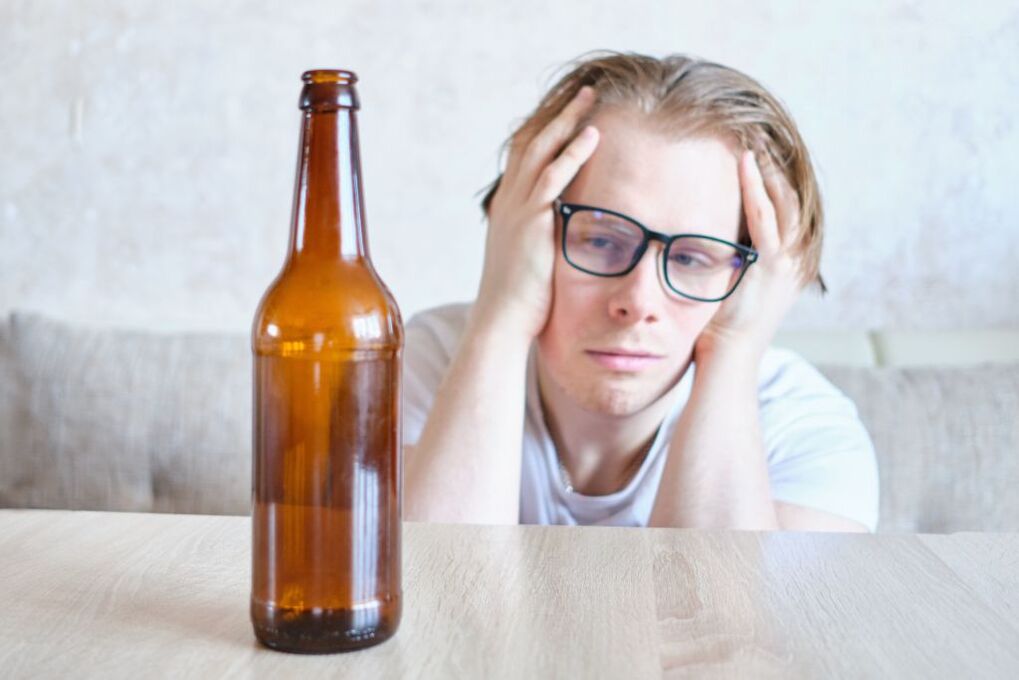
Also, many people put it down after a hard day's work, drinking a glass, another alcohol or even a light beer such as beer, immediately followed by relief from stress, comes a good mood, fatigue is reduced. Experts explain this with the fact that alcohol is actually in the group of narcotics, and the World Health Organization equated alcohol with a drug in 1975. Entering our brain, and for it there are virtually no barriers to entering the bodyour, it affects dopamine neurons, which are excited and start producing dopamine, in fact, producing the hormone of happiness and pleasure. The brain senses the beginning of this period and begins to associate it with alcohol intake, which, in fact, leads to the formation of a strong, lasting positive psychological link between alcohol consumption and the brain. Then, to get the same "pleasure", you need to drink more, then even more often, as the sensitivity of dopamine receptors becomes increasingly dull. And, in fact, a person flows smoothly into the second stage of alcoholism, when there is not only a psychological connection but also a physiological dependence on alcohol consumption, which requires immediate treatment for alcohol dependence.
How to stop drinking?
Therefore, those who understand their "future", where their life is going with frequent drinking, and who want to get rid of this growing addiction, actually have to fight the brain itself, which begins to have a connectionpsychologically stable and the need to drink alcohol to get some bright quick "joyful" moments in life after drinking.
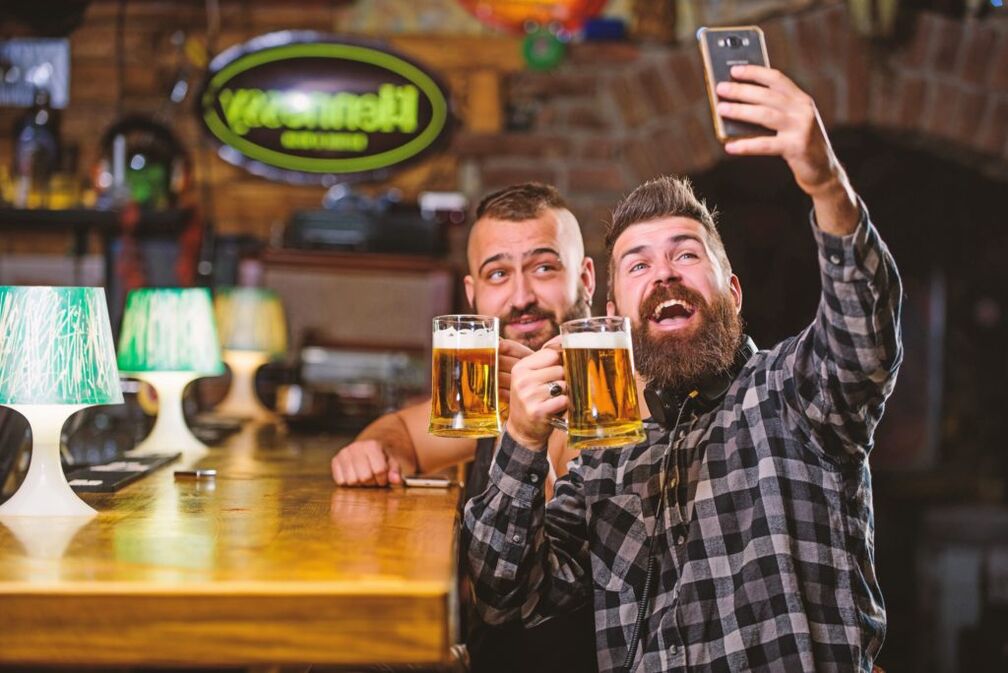
Step 1 - it is necessary to accept that the brain is, in fact, our worst enemy!
All the problems we face initially arise in its depths (fear, anxiety, reluctance), this is the work of the brain. It creates obstacles for us, creates difficulties, forms habits and prevents us from coping with them.
By drinking alcohol, we get a large amount of dopamine secreted by the brain from contact with alcohol, a neurotransmitter responsible for joy, euphoria, pleasure in the brain. This number is so large that it obscures even the happiest moments of our lives. This flow of "unearned" joy and pleasure comes precisely from the effects of alcohol on the brain. Therefore, by taking "free" pleasure through alcohol and gaining a strong connection with it, he is trying to achieve - like, "I want more such pleasures, I want more joy so fast, I want to relieve quicklystress from life "in the simplest way, by drinking alcohol, without trying to solve the difficult tasks accumulated, and then enjoying their solution.
Step 2 - Desire is the root cause of all beginnings!
Only desire can completely rebuild your brain and form the right order in it. Just the desire to get more "hard" joy, more "hard" pleasure, gained after applying a lot of strength, and not only - I drank and "I feel good, and I do not care about anything. "Just the desire to get real "gained" joy interrupts the brain's desire to get "easy" joy quickly, here and now. Since, once you made the decision to give up alcohol, you declared war on your brain, at the same time you formed an order in your head for the other desires of "work" and took the direction of prudence.
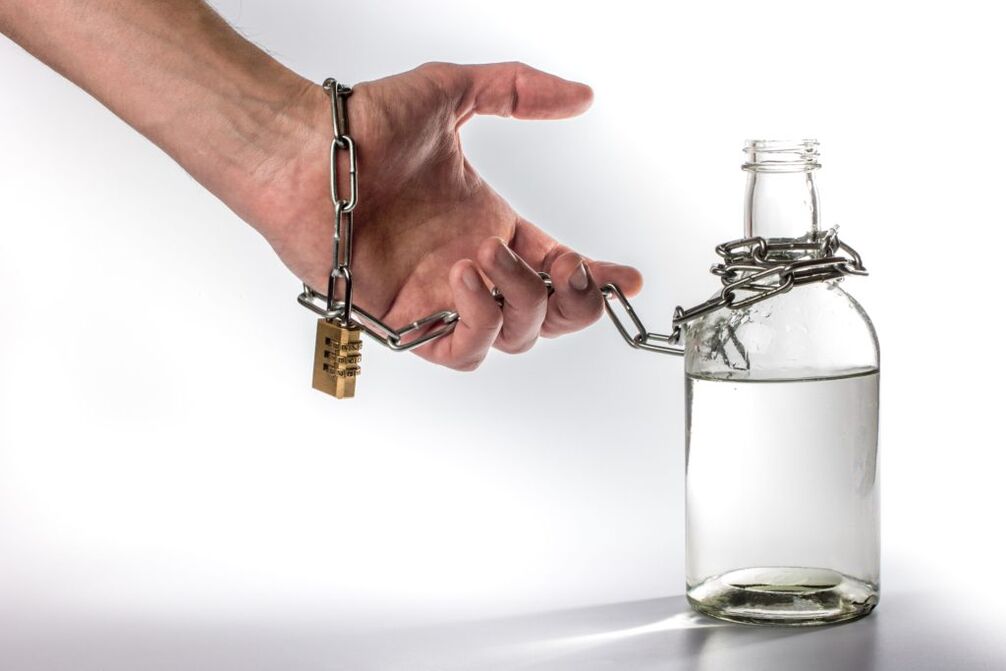
Step 3 - Leave it easy! Not starting again is hard!
Do not start from scratch. . . Sometimes it is catastrophically difficult! That's why - giving up addiction is always a struggle. The brain ignites a keen desire to accept something, and removes all obstacles to it. Your willpower is the only obstacle to drinking alcohol.
Ethanol (alcohol) is a powerful stimulant of joy and euphoria in the brain. If you quit drinking, you will most likely start to think about how good it would be to drink beer, or vodka, or brandy. Remembering alcohol as a pleasant event, but otherwise the brain will not remember alcohol, which brings him a host of feelings of joy and euphoria, and all this immediately, you will not be able to resist the desire to drinkagain. Here you either have to be able to think of alcohol as a bad event, or be coded. Coding alcohol will help to relive this moment of desire and give time to the possibility of getting negativity from drinking alcohol.
4 steps - will not take long!
Therefore, this desire should be appreciated. . . Rate on a scale of 10 points. How powerful is desire (like a typhoon or a storm). Rarely, when you understand the scale of desire, the scale reaches a powerful thirst of 10 points. Therefore, based on the results of awareness, it is necessary to switch this non-strong desire to other types of activity.
Begin to receive simple natural human joys from life, from work, from family, from hobbies, from communicating with other people. Never drink alcohol, otherwise you will have to start all over again.
The more varied your new entertainment, the faster the brain will adapt to low normal dopamine levels, and as we recall, alcohol dramatically and many times artificially increases dopamine levels in the body.
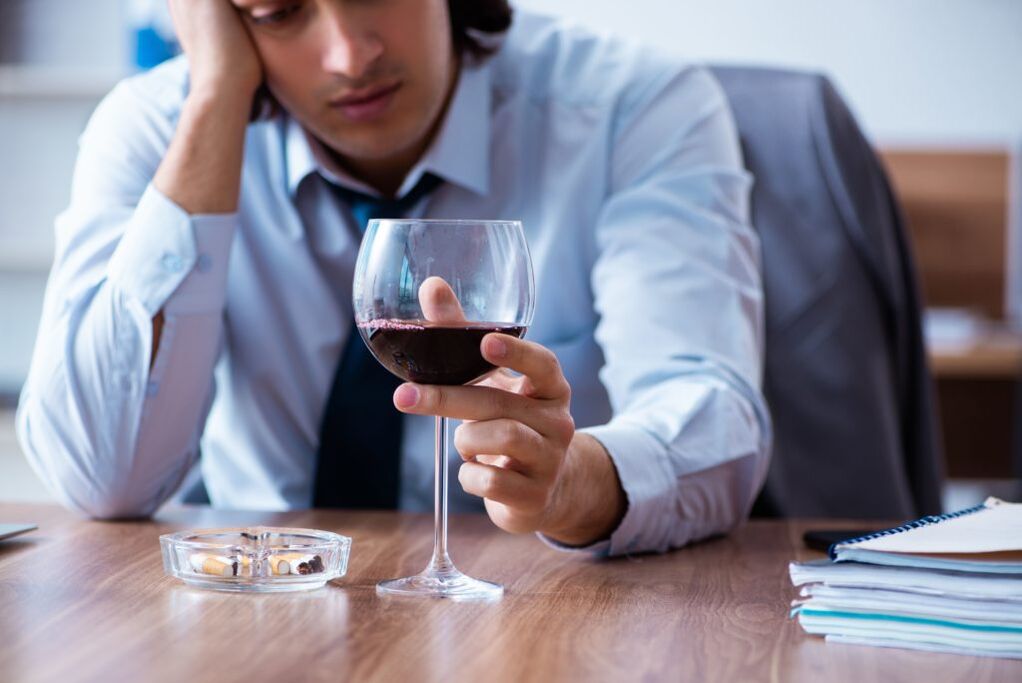
Step 5 - Just throw away alcohol!
We do not recommend quitting and quitting smoking at the same time, or giving up your favorite foods. If this is done at the same time, then the risk of breakdown increases many times over, as when you give up everything, the brain experiences much more stress than when it gives up some habits or addictions. In the beginning, you can keep other bad habits.
Therefore, if you decide to quit drinking, then stop drinking. If it is more important for you to quit smoking, then just quit smoking. By throwing everything away right away, you will not be able to resist the double or triple temptation. And if you break down, for example in smoking, you will most likely break down in giving up alcohol.
Step 6 - Do not lose!
In the first week, the most difficult moments arise when you quit alcohol. Fear, anxiety, increased desire. Here, whatever one may say, it is very difficult to cope without medication. If you know it will get worse, it is best to seek medical help from your doctor. There are medications that really reduce the desire to drink alcohol, reduce stress and eliminate anxiety.
In such cases, we strongly recommend that you contact the doctors at the drug treatment center. They will help you choose the right life cycle regimen in order to stop drinking. Provide optimally selected medicines and vitamins and minerals necessary for the body. Check your well-being with the latest medical equipment.
After all, the most important thing is not to rest and start drinking again.
Step 7 - You need support!
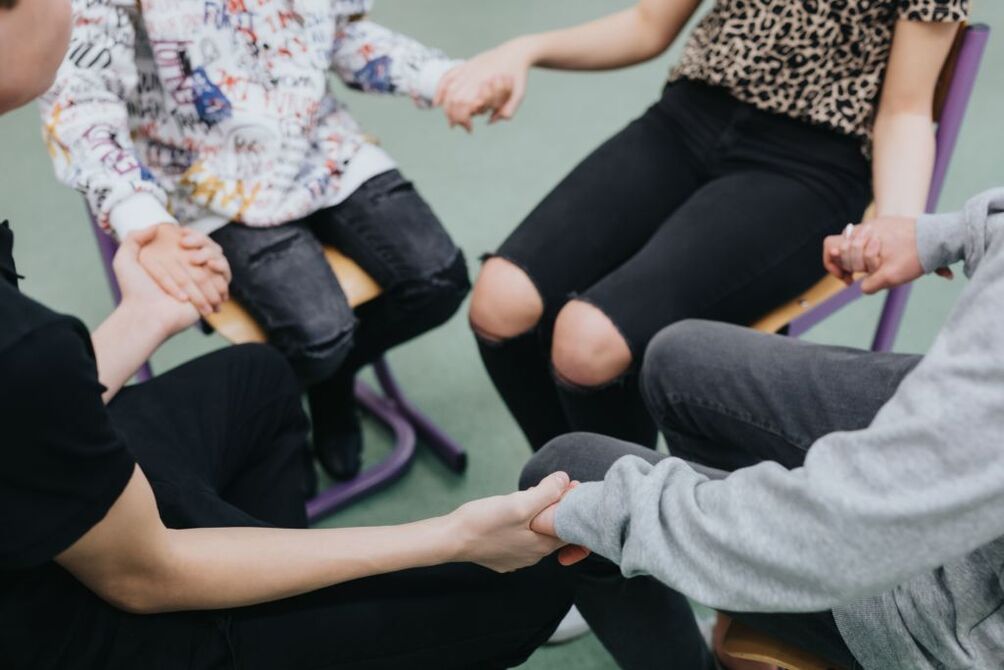
For support, there is always the possibility to contact the group of anonymous alcoholics. If we reject all conventions and unwillingness, then it is clear that people are able to help each other. Without support, we are practically powerless even in everyday life. If you do not want to join the group of anonymous alcoholics, then you have the opportunity to contact the psychological support service.
Step 8 - Burn adrenaline!
Due to the marked increase in the amount of adrenaline in the blood as a result of rejection by alcohol, it must be burned. Burning adrenaline without touching others is only possible through physical activity. Like everything in our lives, you need to start gradually. Better better if there is an opportunity to work out in the gym. If not, then short walks or jogging will suffice.

If you give up alcohol, take more walks, meet friends and take an active break.
By providing yourself with sports activities, you not only help burn adrenaline, but also strengthen your muscles, nervous system, health, and provide your brain with new tactile and physical sensations, forcing it to be distracted by the thoughts of alcohol. Such extra "work" for the brain has a beneficial effect on movement along the path of sobriety and an active sober life.

Walk and travel more with a complete rejection of alcoholic beverages.
Go for a walk, travel, where the brain has nowhere to hide with its thoughts about alcohol. Move and burn old pleasant drinking memories with new impressions.
Step 9 - You Will Succeed! Do not doubt!
Importants is important to cope with: sleep, food, try to be in the mood and in the mood for the positive. Moreover, this applies to all people, as we are all dependent on something. This is why the regime is so important to achieve a positive result. only the regime is able to sharpen us to fight (first of all, by ourselves)

Step 10 - Try to be happy!
Being sober after drinking alcohol is quite boring. The world around us ceases to delight in colors and events because they lack the power to end the euphoric state of alcohol intoxication. This boredom is also a product of our brain. Therefore, you have to constantly look for yourself: a new hobby, interest, desire. Happiness is a product of our brain (as is fear). The brain can be personalized and depend on you.
Popular questions about alcohol and the answers to them
Every time I quit alcohol and can not contain myself - start again, what should I do?
Summer very hard to give up drinking alcohol. The neural connections created in the brain between a positive idea of drinking alcohol and taking joy, pleasure and euphoria from it cannot be destroyed just without war. Alcohol belongs to the group of narcotic substances and will not work to expel its effect on the body from the body without hard work, perseverance and willpower.
If you do not have enough willpower to resist alcohol, then you should think of coding as an option to stop drinking alcohol.
If you are full of perseverance and strength to fight alcohol addiction, then:
- Do not give up.
- Try to fool your brain because it is the main leader of your body. Think of alcohol as a toxic substance, remember only bad experiences with drinking. Imagine it as an extremely dangerous substance and drink it with disgust, holding strong alcohol in your mouth especially to feel trouble. Do everything in order for it to be uncomfortable for you to drink alcohol.
- Start drinking alcohol in very small doses. Just a small sip. Be determined about that.
- For any alcoholic suggestion, translate your craving into those non-alcoholic beverages you like best, and drink only for pleasure instead of alcohol.
Try with all your knowledge and tricks to resist alcohol addiction. Remember that alcohol controls your brain.
Could alcohol coding be part of the treatment of alcohol dependence?
Coding is often included in the course of treatment to enable the patient to live the coding time without drinking. During this time, you can usually improve your health, destroy alcohol, restore family and work relationships if they have been broken due to alcohol dependence, and recover morally and physically.
Can a person drink alcohol and not be an alcoholic?
Sure you can. There are many such people. They are aware of the dangers of drinking in large quantities and do not allow themselves to get drunk "in the trash", work out of sleep, quarrel with his wife, ruin their health and make themselves a host of worriesothers. Even more resistant to alcohol dependence, if he drinks a lot of alcohol almost every day, then he will quickly develop the habit of drinking alcoholic beverages. And if we consider that alcohol belongs to the group of narcotic substances, which was approved by the World Health Organization in 1975, then alcohol dependence will most likely cover almost anyone who drinks alcohol very often. Therefore, drink alcohol only in a limited amount that does not lead to addiction.
























